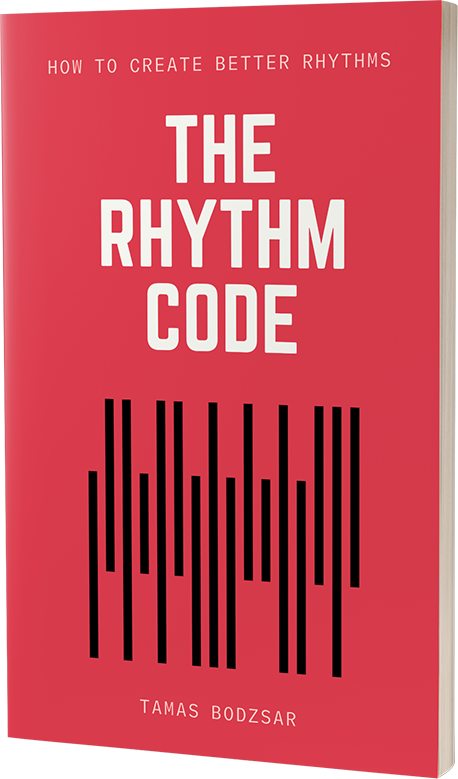
When we start to write our first songs, let’s be honest, they really don’t sound good. Writing good songs can be hard when you just start out. Even if you are an experienced musician, you have probably noticed that it requires totally different skills than playing a song that is already written. Recognizing that our songs are not good enough is already a good step towards being better. But the question is, how can we improve and write better songs?
Write more songs
This is probably the most important aspect of writing good songs, and nobody tells you. The only difference between you and successful songwriters is that they have written much more bad songs. Yes, BAD songs. The biggest improvement can be achieved by just simply writing more songs. Not with music theory, not with songwriting tools but with writing more songs. I personally know someone who knew nothing about music theory, yet he writes pretty good songs. Simply because he keeps trying and trying and writing more songs. Another good example is Michael Jackson who wrote successful songs without knowing anything about music theory. Of course, learning music theory and learning the tools of songwriting will speed up the process, but the most important thing you can do for improvement is to simply write more songs. For example, take 30 days, and write 1 song every single day. If you really want to go pro, write 1 song every day for a year.
Analyze successful songs
We don’t have to reinvent the wheel. There are many great songwriting tools that are used by successful songwriters before us. Using these tools doesn’t kill creativity, you can still be extremely creative. But there are certain things that are just really effective to use.
They say you need to listen to a lot of music. And sure, that’s true. But listening is not enough. Because if you only listen, you won’t understand the context. The best way to learn from any music is if we write it down on paper and see it visually. That way it’s easier to understand why and how the melody works, what is the relation between the melody and the chords, how a chord progression works, and things like that.
I analyzed more than 2000 successful songs by writing them down, and I collected all the songwriting tools that are used by those songwriters. So if you want to save some time, you can go through our songwriting course to learn these tools.
How about music theory?
I believe that it’s completely possible to write good songs without knowing any music theory. Last year I bought a very expensive ($300) “songwriting course” that was made by a highly successful, Grammy-winning singer-songwriter. Unfortunately, it was a huge disappointment. Because she has no idea how she writes her songs. Her course was full of fluff and nonsense. And at one point, she even admitted she doesn’t know any music theory, she writes songs by sitting down to the piano and trying out things. (Well, that’s nothing wrong with being clueless about music theory, but then she shouldn’t sell a songwriting course, especially for that price.)
The point is, it’s completely possible to write good songs without knowing music theory. But the truth is, knowing it helps a lot. It just makes things easier, it fastens up the process. Music theory alone is not enough, but being familiar with the basics really helps. So if you have some weak spots in this area, learning the basics can help.
Elements of a song
Chord progression
The chord progression is the foundation of a song. You cannot write a good song with a bad chord progression. You cannot write a good melody if the chord progression doesn’t make sense. The chord progression alone should make sense, even without the melody. It already has to tell a “story”. Does your chord progression make sense? Does it sound like something you would hear from a professional songwriter? One thing you can do is to write down and play the chord progressions of the songs you like from other artists. And try to recognize why those chord progressions work. You can learn these things from the course here on our website.
Melody
The melody is the most important part of any song. It is what the average, non-musician listener remembers. They don’t remember the bass line, the drum groove, or the chord progression. They remember the melody – if it’s written right. But this doesn’t mean you need to overcomplicate it.
A good arrangement can improve your song a lot. I know, I have written songs with great arrangements. The melody wasn’t that great but it was still working, people loved those songs. But a really good song has a melody that you can perform with only a simple guitar or a piano and it still sounds good.
Rhythm
Rhythm is the most overlooked topic in music. In fact, so far there has been no theory of rhythm. But one of the most important aspects of a good song is rhythm. It affects how good your melody is, and it affects how good the arrangement is. You cannot write a good song without a good rhythm.
Of course, writing a good rhythm doesn’t require any knowledge of theory. You can write a lot of songs and find good rhythms eventually. But learning some theories about rhythm can help to speed up the process.
Just to be clear, I’m not talking about the rhythm values (eighth note, quarter note, etc.) Those are NOT rhythm. Those are rhythm values. They only show the duration of the note. They become rhythm only if you put them in a system.
Is there a system? Yes, there is. But nobody has noticed it yet. I found a hidden rhythm system behind all successful songs that I call the Rhythm Code. With the Rhythm Code, you can create better melodies, better bass lines, better arrangements. You can learn it from our course.
Lyrics
The lyrics are usually the last part of the song that songwriters create. Most of the time, I realized that music (especially the melody) is more important than the lyrics. How do I know that? When you find lyrics that contain syllables like “oh” and “yeah”, you know that melody was a priority and the lyrics were secondary. Because those syllables don’t add any value to the lyrics, they are only there for one reason: to maintain the original melody.
But of course, the lyrics are important. If you want to write better lyrics, you need to READ a lot of lyrics from successful songwriters. Yes, READ and not listen. And you also need to analyze those lyrics to understand what makes them sound good. Good lyrics are not overcomplicated but not generic either. You need to use some specifics in order to make it personal and unique.
The secret pattern behind successful songs
Get the eBook for $4.99

